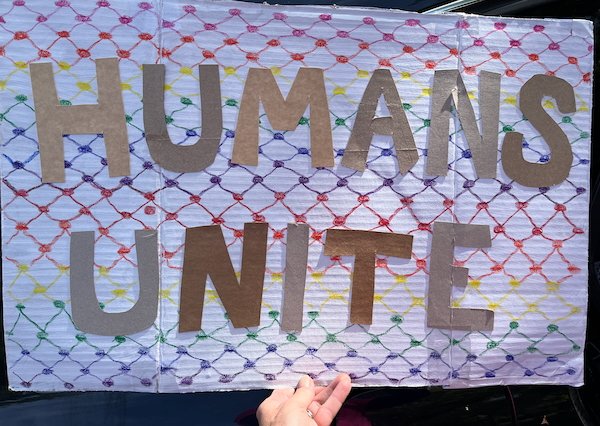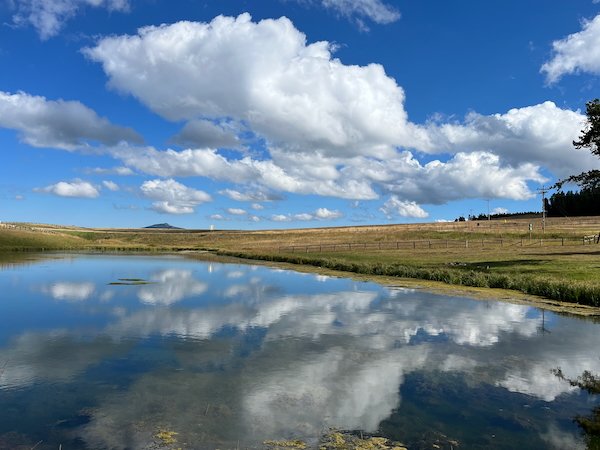One of the people I stand in vigil with on Fridays was asked, “Why are you so obsessed with Palestine?” I would have to ask in reply “Why aren’t you? Why isn’t everyone?” Why don’t you see that what’s happening in Palestine is showing us the kind of world we live in, where exceptionalism and supremacy have infiltrated modes of education and communication so thoroughly that regular people can accept or ignore the dehumanization, dispossession and slaughter of a large group of fellow people? Why doesn’t this seem like a moral crisis to you?
I remember learning in grade school about World War II, how the Allies liberated the death camps in Europe. What remains with me strongly is the shock of the allied troops as they discovered people starved, tortured, and haunted by death in the enclosures, and as they confronted the contents of ovens - the sickening realization of how bad it was, how extensive, how they hadn’t known what was really happening over the years of the Third Reich’s conquest.
Today, we know. We see the bombing, the forced relocation, the targeted killing and kidnapping of doctors, journalists, and thousands of people whose only crime is to be Palestinian. If you aren’t seeing it, if you don’t know this is happening continuously now for 19 months, then you’re either deep in avoidance, or believing the misleading propaganda that downplays and justifies this genocide. But you need to pay attention, because it’s characteristic of the world you’re in — there’s no place you can go that won’t be touched by this genocide and the attitudes that fuel it and arm it and protect or excuse the perpetrators.
And if anyone wants to ask if I condone what propagandists call ‘acts of terrorism’, I would ask in reply why they care more about two deaths in DC than one hundred in Gaza on the same day, why they care for the lives lost on Oct. 7, 2023 more than the tens of thousands of people whose lives have been taken nearly every day since then, along with their homes, schools, hospitals, libraries, universities, and access to water and food for survivors. Valuing one set of lives more than another is the source mistake, the mindset that is being illustrated in all its destructive potential in front of our insufficiently horrified eyes. If we value human life, then “never again” means everyone, everywhere.
This is why the sign I made says Humans Unite. It is my one wish, one thing that could take us out of this nightmare: if humans recognize one another as equally human, all precious and all indispensable, we couldn’t create and sustain this situation. It would stop.
If you really don’t know what’s happening, please look and learn. Since mainstream news outlets are participating in biased narratives, I recommend the following news sources and reflective writings: Middle East Eye, Al Jazeera English, Al Jumhuriya, Haaretz (paywalled), Fady Joudah: A Palestinian Meditation in a Time of Annihilation, Henna Platform, Mahmoud Khalil Letter to my Newborn Son. And this just in: Arwa Mahdawi once again speaking truth.
This is the other side of my Humans Unite sign: Stop Punishing Palestinian People, (free Mahmoud Khalil) - I like to have a message on both sides.
I write this because I really don’t know what else to do, and it’s better than nothing. I printed up a book of poems for the same reason (mentioned and shown here) - if you are interested in the poems, please contact me. I will send you a copy in exchange for a donation to WCK or MSF or groups that help in Gaza if they are able. Please click on those two links for more real-time information on what’s happening in Gaza, unfiltered by political agendas.
Screenshot of Doctors Without Borders Instagram






